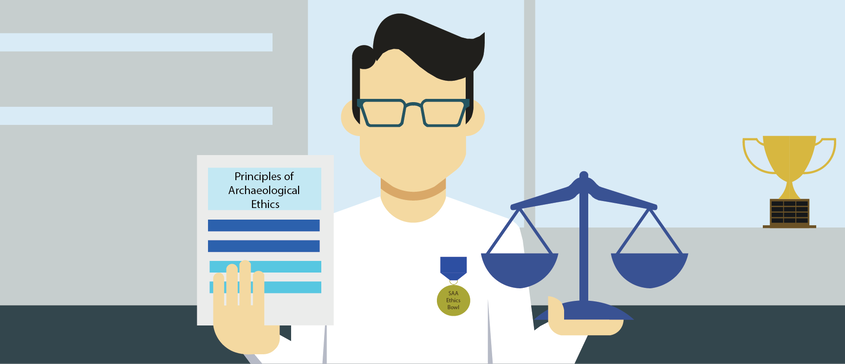 National Science Foundation Grant Awarded! Our very own Dr. Katherine Chiou and Dr. Dru McGill of North Carolina State University received an NSF Ethical and Responsible Research Grant ($318,276) to fund the three-year project "Collaborative Research: Enacting Professional Ethics and Disciplinary Transformation through the Promotion of Evidence-based Training and Education Initiatives in Archaeology." Funding for this project begins on January 1, 2023. This project will advance knowledge on a scientific ethics training intervention known as Ethics Bowls, which employ competitive case study-based debate to immerse participants in ethical issues, frameworks, and problem-solving strategies in active-learning environments. Ethics Bowls, particularly the Society for American Archaeology Ethics Bowl (SAA EB), have been used to train students in the discipline of archaeology over the last 18 years, resulting in the participation of hundreds of individuals and establishing a baseline dataset for assessing long-term effects of this training activity. As archaeologists grapple with intersecting ethical crises, the SAA EB is one of the few formal ethics education opportunities in the field. Moreover, the SAA EB, in contrast to other discipline-specific Ethics Bowls, is designed to target graduate students preparing to enter archaeology professions as research scientists. Using a combination of (1) quantitative and qualitative data from a mixed-methods survey, (2) interview data from former SAA EB participants and archaeologists with no Ethics Bowl exposure, and (3) consultations with diverse practitioners, relevant community partners, and Advisory Boards with expertise in archaeological ethics and interdisciplinary approaches to ethics and responsible conduct of research (RCR) trainings, the research team will: identify successful aspects of Ethics Bowl training; redesign and debut an improved Ethics Bowl model; and craft deliverables that contribute to establishing and maintaining a disciplinary culture of ethical research and practice within archaeology and other STEM fields. Specifically, this project’s broader contributions include (1) creating indexes of ethics case studies; (2) documenting challenges in disciplinary-centered, active-learning science ethics trainings; (3) emphasizing archaeologists’ responsibilities to the diverse publics they serve through effective, widespread ethics training; and (4) supporting diversity, equity, and inclusion goals by funding and mentoring early career scholars from minority-serving institutions. The research team anticipates that this intervention will lead to an increase in the retention and recruitment of students and early career professionals from backgrounds that have traditionally been underrepresented both in archaeology and other STEM fields. Overall, the transformation of ethical preparation amongst early career researchers will benefit society by preparing scientists to be aware of—and responsive to—changing social needs, values, and norms. Congratulations, Drs. Chiou and McGill!
0 Comments
|
AuthorWrite something about yourself. No need to be fancy, just an overview. Archives
February 2023
Categories |


 RSS Feed
RSS Feed
